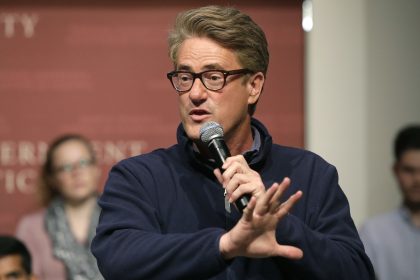Congress Has the Power — and a Responsibility — to Pass Legislation to Halt Dangerous Cuts to Medicare
COMMENTARY

It will not come as a surprise to most Americans that our health care system is in crisis. We all have a loved one who waited months for an important appointment or traveled hours to receive specialized medical care.
Maybe you’ve even faced such challenges yourself.
But while we are all living with the consequences of a deteriorating health care system, many are not aware of some of the underlying problems.
In recent years our health care system has rapidly consolidated as a result of repeated cuts to Medicare reimbursements for physicians and a fixed budget for physician payments that has not even made any adjustments for inflation for the past two decades — unlike the budget for hospitals and insurers, which has grown every year.
This has forced many doctors and their private practices to either close or be bought out by large hospital systems, insurers or for-profit venture capitalists. As a result, quality health care in rural communities and underserved areas is disappearing, potentially leaving millions of patients without access to essential medical and specialty services.
As a doctor, the seemingly relentless yearly cuts to Medicare reimbursements for office-based specialists can be particularly devastating. Sustaining a private medical practice and offering cutting edge technology for minimally invasive procedures while reimbursement for such services progressively decreases can become a financially unsustainable situation.
A recent national study of six medical societies found that 94% of physicians surveyed say that recent changes to the Medicare Physician Fee Schedule are having a negative impact on their practice. Over half (53%) believe the likelihood of their practice’s financial success is unlikely given the ongoing decreases in Medicare physician payments.
This has a very real impact. In fact, one in four of the doctors surveyed are “likely” or “very likely” to close their practice in the next two years.
Congress has the ability to slow this trend of private practice closures by passing H.R. 3674, the Providing Relief and Stability for Medicare Patients Act of 2023.
This bill would end the repeated yearly cuts to office-based specialists that we have seen over the last two years. It also partially addresses insufficient Medicare physician payments, preventing specialists from going out of business and leaving patients without easily accessible care close to their home.
This has significant implications — the recent study of physicians found one in five (21%) are likely to sell their practice if cuts continue and nearly as many (22%) are likely to become a hospital employee. Between 2021 and 2022 alone, nearly one in 10 (8%) of those surveyed have retired, sold or closed their practice as a result of Medicare cuts.
Without intervention, this number is poised to skyrocket — 17% are likely to retire if cuts continue, further shrinking the pool of qualified specialist physicians.
This legislation is a rare win-win-win for patients, doctors and taxpayers. The closure of office-based specialists forces patients to seek care at hospitals, where both co-payments for the patient and invoices to Medicare are much higher, with a resulting major drain on taxpayer funds.
H.R. 3674 cuts unnecessary taxpayer spending on high-priced hospital care and ensures patients can receive high-quality and timely care in office-based settings closer to home.
This legislation is a critical step in strengthening our health care system and ensuring Americans have access to life and limb-saving care.
I see parallels between the oath I took upon becoming a doctor and the oath that members of Congress swear when they take office. I pledged to do no harm and put patient well-being above all other considerations, while members of Congress vowed to uphold our constitutional rights to life, liberty and the pursuit of happiness. We all have our own roles to play in ensuring a health care system that lives up to these ideals. Doctors and other health care providers have fought relentlessly to ensure exceptional care amid increasingly challenging circumstances.
Now, it is up to Congress to do its part.
Congress must act quickly to pass the Providing Relief and Stability for Medicare Patients Act of 2023. Patients and physicians are counting on them.
John Blebea, MD, MBA is the chair at Health Care Policy Committee, American Vein and Lymphatic Society. He also serves as a clinical professor of Vascular Surgery at Central Michigan University. He can be reached on LinkedIn.
























